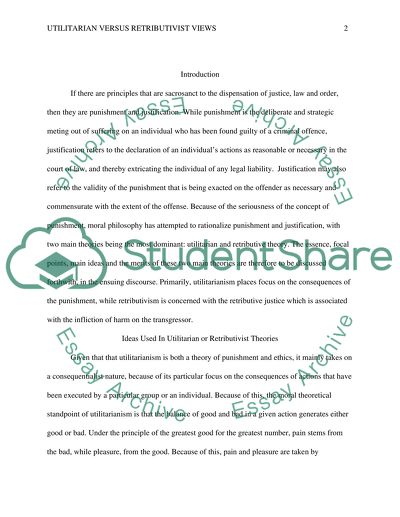Cite this document
(“Utilitarian versus Retributivist Views Essay Example | Topics and Well Written Essays - 1500 words”, n.d.)
Utilitarian versus Retributivist Views Essay Example | Topics and Well Written Essays - 1500 words. Retrieved from https://studentshare.org/philosophy/1457083-punishment-justification-utilitarian-view-versus
Utilitarian versus Retributivist Views Essay Example | Topics and Well Written Essays - 1500 words. Retrieved from https://studentshare.org/philosophy/1457083-punishment-justification-utilitarian-view-versus
(Utilitarian Versus Retributivist Views Essay Example | Topics and Well Written Essays - 1500 Words)
Utilitarian Versus Retributivist Views Essay Example | Topics and Well Written Essays - 1500 Words. https://studentshare.org/philosophy/1457083-punishment-justification-utilitarian-view-versus.
Utilitarian Versus Retributivist Views Essay Example | Topics and Well Written Essays - 1500 Words. https://studentshare.org/philosophy/1457083-punishment-justification-utilitarian-view-versus.
“Utilitarian Versus Retributivist Views Essay Example | Topics and Well Written Essays - 1500 Words”, n.d. https://studentshare.org/philosophy/1457083-punishment-justification-utilitarian-view-versus.


